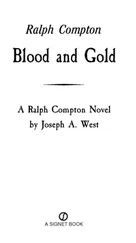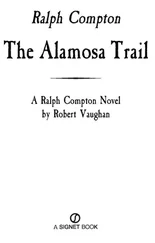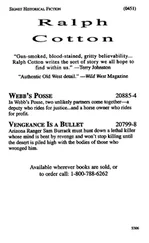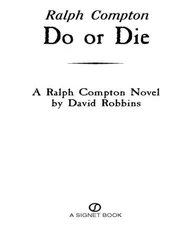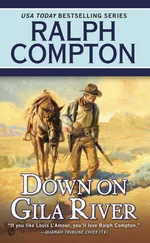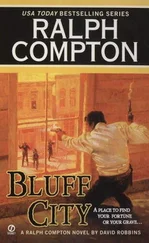Ralph Compton - West of the Law
Здесь есть возможность читать онлайн «Ralph Compton - West of the Law» весь текст электронной книги совершенно бесплатно (целиком полную версию без сокращений). В некоторых случаях можно слушать аудио, скачать через торрент в формате fb2 и присутствует краткое содержание. Год выпуска: 2008, ISBN: 2008, Издательство: Thorndike Press, Жанр: Старинная литература, на английском языке. Описание произведения, (предисловие) а так же отзывы посетителей доступны на портале библиотеки ЛибКат.
- Название:West of the Law
- Автор:
- Издательство:Thorndike Press
- Жанр:
- Год:2008
- ISBN:9781410409225
- Рейтинг книги:4 / 5. Голосов: 1
-
Избранное:Добавить в избранное
- Отзывы:
-
Ваша оценка:
- 80
- 1
- 2
- 3
- 4
- 5
West of the Law: краткое содержание, описание и аннотация
Предлагаем к чтению аннотацию, описание, краткое содержание или предисловие (зависит от того, что написал сам автор книги «West of the Law»). Если вы не нашли необходимую информацию о книге — напишите в комментариях, мы постараемся отыскать её.
West of the Law — читать онлайн бесплатно полную книгу (весь текст) целиком
Ниже представлен текст книги, разбитый по страницам. Система сохранения места последней прочитанной страницы, позволяет с удобством читать онлайн бесплатно книгу «West of the Law», без необходимости каждый раз заново искать на чём Вы остановились. Поставьте закладку, и сможете в любой момент перейти на страницу, на которой закончили чтение.
Интервал:
Закладка:
The train was moving faster, the boxcars and caboose hammering along the rails, plunging into the darkness.
Fear coursing through him, McBride put his hands to his mouth and roared into the night: ‘‘Inspector!’’
He heard a flurry of shots. Then an echoing silence mocked him.
Chapter 2
Days, nights, melting into a blur of landscape, changing weather and the pale, shifting faces of his fellow travelers, rushed past John McBride at the speed of a steam train. He had no final destination, no place of rest in mind. He kept to himself, spoke to no one and was content to ride the iron rails to wherever they might lead.
But one thing he did know—his direction was west, always west, toward the Divide.
Two weeks after he’d left New York, McBride stood on the platform of a train station . . . he knew not where.
Over the past hour it had grown dark and the sky was ablaze with stars. Lanterns hung on each side of the door that led to the waiting room and ticket office, casting dancing pools of orange light, flecked with tiny white moths.
His carpetbag at his feet, McBride looked around him. The station was small, but it had been built with care. Elaborate gingerbread carving adorned the edges of the slanted roof, and expensive, wrought iron benches were placed at strategic intervals along the platform for the convenience of travelers. A water tower stood by the tracks, leaking fat drops as they all did, and close by sprawled a rickety cattle pen.
Beyond the station he saw the lights of a town, tiny by McBride’s standards. He was a man who had been born and bred in the big city. But where there was a town, there would be a hotel, and he was looking forward to stretching out on a real bed.
After he’d left the freight he’d ridden the cushions, but had spent long, boring hours kicking his heels at stations in the middle of nowhere, often just an old boxcar on a siding, where he drank coffee made from alkaline water and ate fried salt pork the few times it was available.
There were other stations, farther west, where he looked over the town and judged what it had to offer. But all of them seemed too small, smaller than this one, and in such towns a man as tall and muscular as McBride would be noticed and be a source of much speculation and talk.
Inspector Byrnes had told him to confide in no one and trust no one, warning him that Sean Donovan’s reach was long. So far none of the towns along the Santa Fe track had offered him the kind of anonymity he sought, and he’d kept on rolling.
At first the country McBride had passed through had been a patchwork of wheat fields, flat country formed by the retreat of ancient glaciers, and a few stretches of pastureland. As the days passed, the land had changed. The villages had disappeared, giving way to rolling prairies that went on forever under the vast blue dome of the sky. The only trees in sight were the cottonwoods and willows that lined the creeks. Once, the train had stopped to allow the passage of a herd of buffalo. Seeing McBride’s interest, and pegging him for a pilgrim, one of his fellow passengers, a wiry old man in a buckskin shirt who held a brass-framed rifle between his knees.
‘‘The buffs are all but gone now,’’ the old man had said, a faint touch of sadness in his smile. ‘‘Maybe we’re seeing the last of them. So remember this, boy, because you’ll never come upon their like again, not in your lifetime or in any other.’’
Only when the old man told him that the Rocky Mountains were directly ahead of them, and beyond the peaks lay the dry, desert lands of the Arizona Territory, did John McBride decide to leave the lurching, smoking misery of the train and find a place where he could settle.
But for how long? A month, a year, longer? He had no answer to this question and the realization of that made him sick at heart. He was a stranger in a strange land, far from the stone canyons and teeming streets of the great city he loved. Maybe there would be no going back as long as Sean Donovan lived. In that case he was doomed to be forever a wandering exile and no one, man, woman or child, would look forward to his coming or regret his leaving.
Unbidden, a sigh escaped McBride’s lips. He shook his head slowly, picked up his carpetbag and stepped into the station. A ticket clerk sat behind an iron grille, a small man with a lined face, a visored cap set straight on his head. He looked up when McBride entered.
‘‘No other trains tonight,’’ the clerk said, waving a dismissive hand, ‘‘ ’cept the Denver cannonball, an’ she don’t stop.’’
McBride nodded, a tall man in an ill-fitting brown suit, looking hot and uncomfortable in his high celluloid collar and dark green tie. His black derby hat showed signs of hard use and was frayed around the brim. The shabby suit coat, cut generously in the style of the time, concealed the Smith & Wesson in the shoulder holster under his arm.
‘‘What is this place?’’ he asked.
The clerk looked surprised. ‘‘Hell, man, you mean you don’t know?’’
‘‘If I knew, I wouldn’t be asking,’’ McBride said.
At first the clerk had tried to slap a brand on the tall man, taking him for a drummer headed for the gold diggings or maybe a cattle buyer. Now, looking into a pair of blue eyes that were the coldest and hardest he’d ever seen, he wasn’t so sure. His tone changed.
‘‘That there iron road outside belongs to the Santa Fe, but you already know that.’’ He waved a hand. ‘‘The town is called High Hopes an’ this is the great state of Colorado. To the west are the Spanish Peaks, to the south the Picketwire and to the north there’s miles of nothing until you reach the Platte.’’ The man smiled. ‘‘Enough for you, stranger?’’
‘‘What’s to the east?’’
The clerk shrugged. ‘‘More nothing until you get back to the place you came from.’’
McBride allowed himself a smile. ‘‘What manner of town is this?’’
‘‘It’s a town like any other west of the Mississippi, ’cept it’s booming on account of the railroad and the gold in the Spanish Peaks. High Hopes caters to miners, cattlemen, whores and gamblers. We got thirty stores, two hotels, three saloons, and I’m betting that nary a man jack of us has ever lived within the sound of church bells.’’
‘‘That apply to the women as well?’’ McBride asked, another smile tugging at his lips.
‘‘Especially the women.’’
McBride thought through what the clerk had told him. Even back East he’d heard of the Western boomtowns with their constantly shifting populations of footloose miners and those who preyed on them, whores, gamblers and saloonkeepers.
A man could lose himself here. He’d just be another face in a constantly changing crowd and no one would notice or care as he came or went.
‘‘What’s the best hotel?’’ McBride asked.
‘‘If you got the money, two dollars a day, the best is the Killeen. If you don’t got the money, you can bunk at Charlie Ault’s place for two bits a night. Of course, you’ll have to share your bunk with another feller and a passel o’ bedbugs.’’
‘‘Then the Killeen it is,’’ McBride said. ‘‘I suppose it doesn’t have bedbugs?’’
‘‘No, no bedbugs,’’ the clerk said. ‘‘It’s got clean rooms.’’ The man had answered the question absently, obviously thinking about something else. Now he said what was on his mind.
‘‘How long you plan on staying in High Hopes, mister?’’
‘‘I don’t rightly know,’’ McBride said. ‘‘Why do you ask?’’
The clerk was suddenly uncomfortable. He rose to his feet, opened the door of the ticket office and stepped beside McBride. ‘‘I have some advice for you, if you’re willing to take it.’’ His previous bantering tone was gone, replaced by something more serious.
Читать дальшеИнтервал:
Закладка:
Похожие книги на «West of the Law»
Представляем Вашему вниманию похожие книги на «West of the Law» списком для выбора. Мы отобрали схожую по названию и смыслу литературу в надежде предоставить читателям больше вариантов отыскать новые, интересные, ещё непрочитанные произведения.
Обсуждение, отзывы о книге «West of the Law» и просто собственные мнения читателей. Оставьте ваши комментарии, напишите, что Вы думаете о произведении, его смысле или главных героях. Укажите что конкретно понравилось, а что нет, и почему Вы так считаете.

